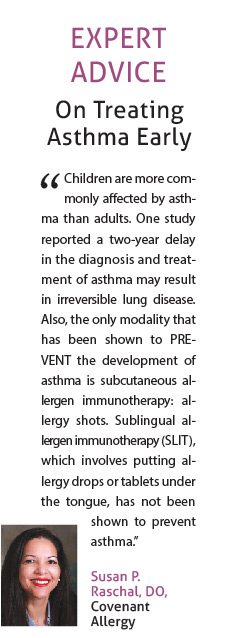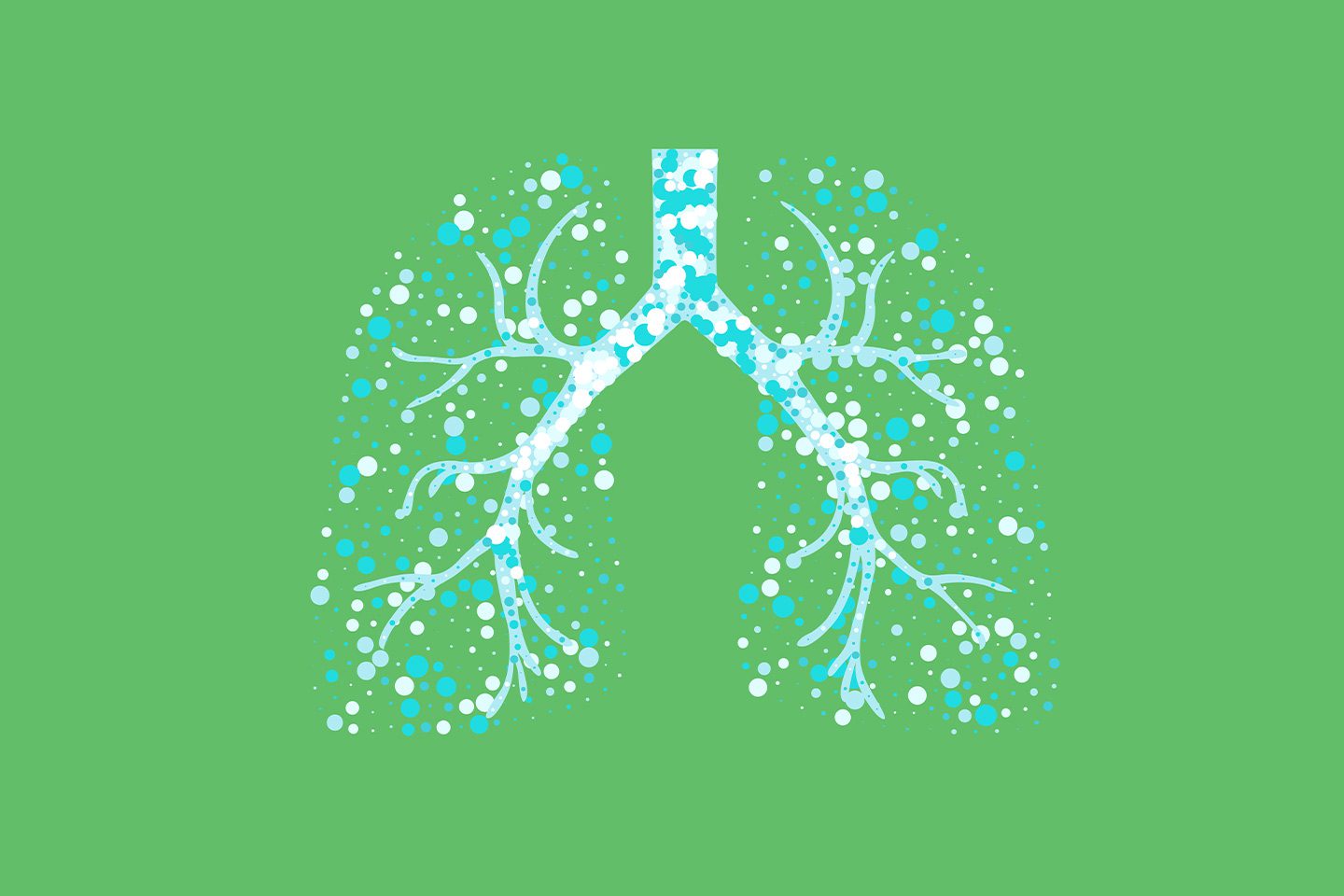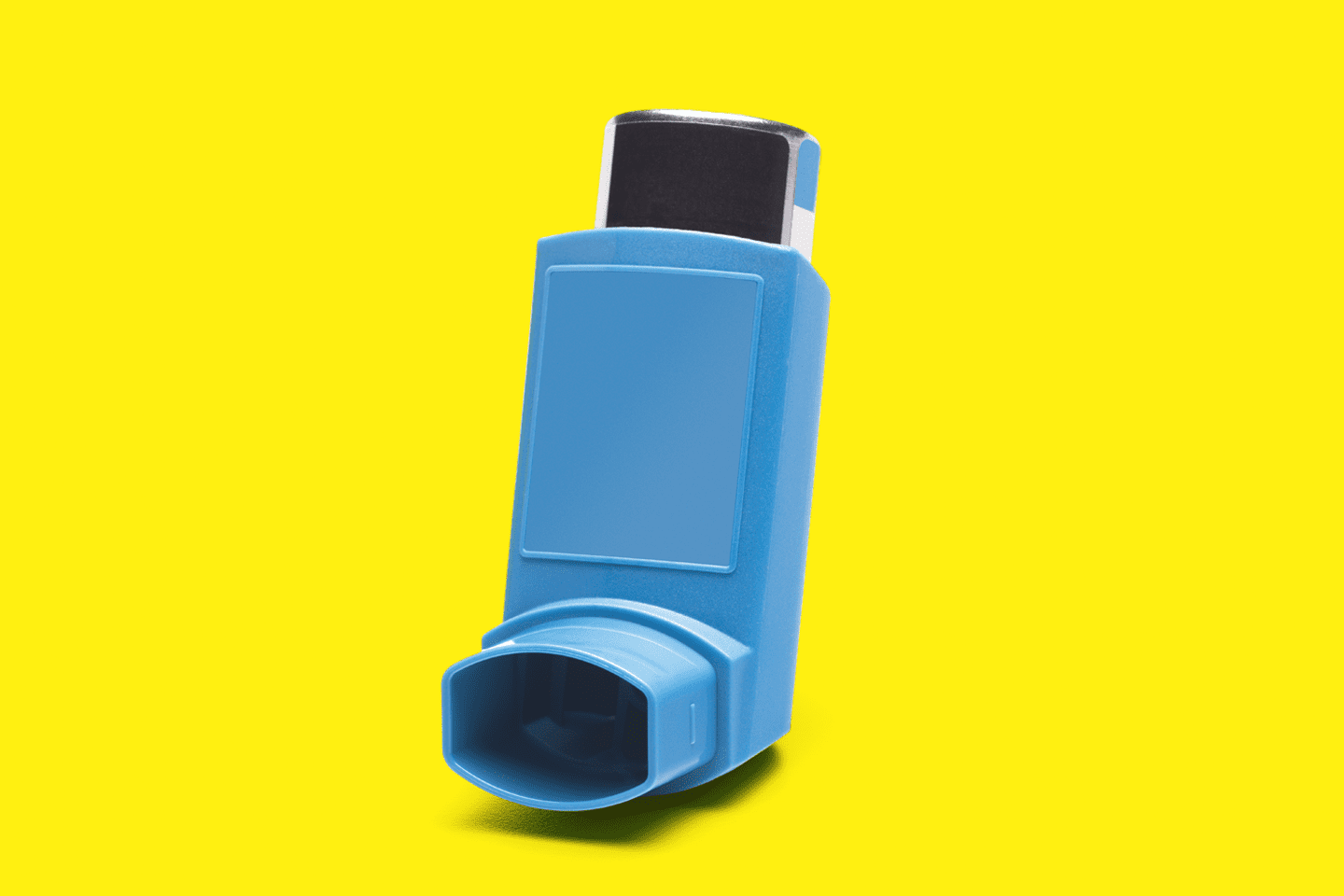
 Asthma is a serious condition that causes several symptoms affecting the lungs. It can significantly impact daily activity, so it’s important to understand what triggers it, as well as how to prevent and treat it.
Asthma is a serious condition that causes several symptoms affecting the lungs. It can significantly impact daily activity, so it’s important to understand what triggers it, as well as how to prevent and treat it.
By Maria Oldham
Full PDF here.
What is asthma?
Asthma is a chronic (long-term) lung condition in which lung airways narrow and become inflamed, making it difficult to breathe. The condition is characterized by three things: airway obstruction, airway inflammation, and airway irritability.
Airway Obstruction: when the bands of muscles surrounding the airways tighten, or spasm, blocking the flow of air. This tightening causes shortness of breath and frequently results in wheezing (a whistling sound when you breath) when the air passes through.
Airway Inflammation: when lung airways become red and swollen.
Airway Irritability: when lung airways are extremely sensitive to even the slightest trigger.
Two common types of asthma are allergic asthma and non-allergic asth-ma. While both can produce many of the same symptoms, they are triggered by different things.
Allergic asthma (or extrinsic) is triggered by allergens such as pollen, mold, dust mites and pet dander.
Non-allergic asthma (or intrinsic) is triggered by things like anxiety, stress, viruses, sinus infections, exercise, cold or dry air, smoke, and even acid reflux.



Asthma often begins in childhood and is most common among people under the age of 40; however, it can affect people at any age. According to the National Heart, Lung and Blood Institute, asthma affects more than 25 million people in the U.S., 7 million of which are children. Children who have allergies or eczema (an allergic skin condition) often have asthma, and those who have frequent respiratory infections are more likely to develop asthma that continues beyond the age of six. Those who have a family history of asthma are also at a greater risk.
For Chattanoogans, allergies are often a major trigger for asthma because the city sits in the valley and has long growing seasons. In fact, Chattanooga was recently named number three in the country for worst allergies on the Asthma and Allergy Foundation’s “Spring Allergy Capitals” report. Outdoor allergens include trees in the spring, grasses in late spring and summer, and weeds in the fall. Indoor irritants include cockroaches, dust mites, and small pets such as guinea pigs, rabbits, cats and ferrets.
What are signs and symptoms?
Asthma symptoms vary in frequency and severity from person to person, but the most common symptoms are coughing, wheezing, shortness of breath, and chest tightness, pain or pressure. Some people experience asthma symptoms every day, while others may only have infrequent asthma attacks or occasional mild symptoms.
It’s important to recognize the early symptoms of asthma so that severe asthma attacks can be avoided. Some early signs of asthma include: mild cold or allergy symptoms (sneezing, coughing, sore throat, headache), frequent coughing at night, shortness of breath, feeling weak or tired during exercise, and trouble sleeping.
How can I know if I have it?
Diagnosing asthma can be difficult because the symptoms are often similar to those of other illnesses. Additionally, even though a patient may have experienced symptoms for weeks, these symptoms may not be present at a doctor’s visit.
Usually, the first step to diagnosis is obtaining a detailed medical history. Next, the doctor will perform a physical exam along with asthma tests. Spirometry, a test that determines lung function by how much a person can exhale, is frequently used to determine whether the patient has an airway obstruction. It can also help evaluate a patient’s reaction to certain asthma medications. A doctor may also administer a chest x-ray if he or she thinks the asthma is caused by another condition like pneumonia.
In addition, a doctor will often prescribe peak flow testing, a self-assessment done at home. When peak flow testing, a patient uses a portable, handheld device called a peak flow meter to measure lung air flow over a period of time. Routine peak flow testing and monitoring of lung function can help patients manage symptoms and learn how to detect the early signs of an asthma attack.



The best way to treat asthma is through prevention. Luckily, there are a number of things people can do to prevent or control asthma, both daily and in the long-term. Because allergies can be a major trigger, taking allergy medications or avoiding certain allergens are good preventative measures. If exercise is a trigger, a patient should run when pollen is at its lowest levels, or run inside when it is cold and dry outside. It’s also important for asthma sufferers to get a flu vaccination, practice good nasal hygiene (a prescription nasal rinse is recommended), and avoid stress.
Several types of long-term asthma treatments can help keep asthma under control on a daily basis. These include inhaled corticosteroids, leukotriene modifiers (24-hour oral medications such as Singulair), and long-acting beta2-agonists (inhaled medications that open airways). For asthma flare-ups or attacks, several quick-acting medications are available in either oral or inhaled form. A patient should consult a doctor if short-term medications are needed frequently.
Get Help Today!
If you or someone you know is diagnosed with asthma, don’t be afraid to talk with your doctor about it in detail. Good questions to ask include: “What could be triggering it?” “What can I do to prevent or control it?” and “What kind of tests or medications will I need?” A doctor can then help a patient create an “asthma action plan” to learn how to live with asthma. Doctors play an integral role in supporting patients with asthma, so patients should speak openly about any questions or concerns.
See Related Articles










